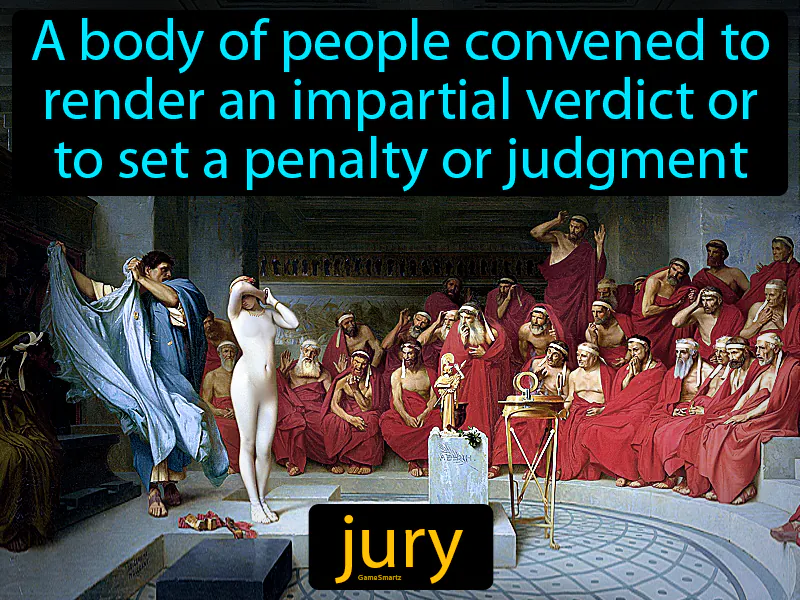Jury
Jury: Easy to understand
In Ancient Greece, particularly in Athens, the concept of a jury was an important part of their democratic system, which allowed citizens to participate in legal decisions. The jury was made up of everyday citizens who listened to cases and decided on the outcome, helping to ensure fairness and accountability in the legal process. This system responded to the need for justice and equal representation, as it prevented powerful individuals from making all legal decisions. Today, juries are still used in many countries, including the United States, to ensure fair trials by allowing ordinary people to weigh evidence and decide on the guilt or innocence of a person. For example, if someone is accused of a crime, a jury of their peers will listen to the evidence and decide if they are guilty, which helps maintain trust in the legal system and protects individual rights.

Practice Version

Jury: A body of people convened to render an impartial verdict or to set a penalty or judgment. Jury. In history, a jury is a group of citizens that decides the outcome of a legal case in a trial.